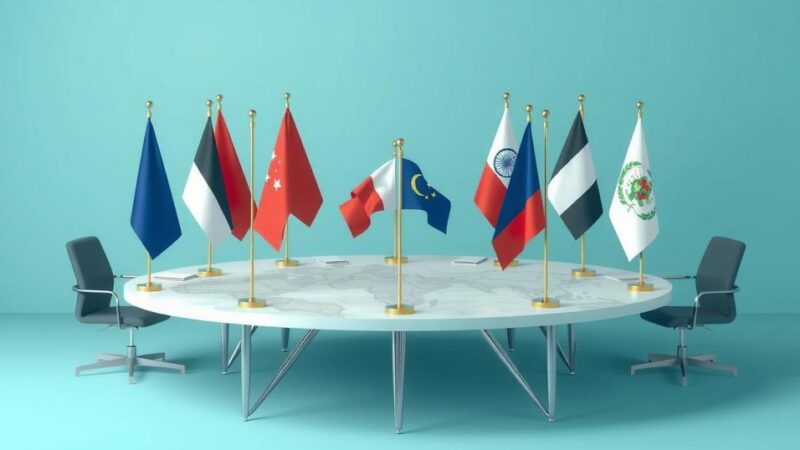Egypt is increasing its military presence in Somalia to participate in a new African Union mission aimed at combating Al Shabab. This deployment also seeks to enhance Egypt’s influence in the Horn of Africa amid ongoing tensions with Ethiopia regarding a significant Nile dam. The Egyptian troops will replace Ethiopian forces in the region, shifting the dynamics of military cooperation and potentially pressuring Ethiopia regarding water security issues.
Egypt is enhancing its military involvement in Somalia as part of a new African Union operation aimed at combating the terrorist group Al Shabab. This development involves the transportation of troops via air and sea, marking a significant advancement in Egypt’s efforts to expand its influence within the strategic Horn of Africa. Analysts suggest this move also reflects Cairo’s ongoing dispute with Ethiopia regarding a significant Nile dam project, seen as a potential threat to Egypt’s water resources. At the request of the Somali government, Egyptian forces are replacing Ethiopian troops in the AU mission, which is poised to reinforce Egypt’s military presence near the Ethiopian border, potentially urging Ethiopia to compromise on the contentious water project.
Earlier this year, Egypt and Somalia formalized their military cooperation, resulting in the deployment of several thousand Egyptian troops in Somalia to assist local security and protect key governmental leaders and facilities. The mission, referred to as the African Union Support and Stabilisation Mission in Somalia (Aussom), replaces the previous African Union Transition Mission in Somalia (Atmis). The UN Security Council approved this deployment, with the United States abstaining from the vote due to financial concerns. The confirmed participation underscores Egypt’s commitment to addressing African challenges and stabilizing regions plagued by conflict, particularly as tensions between Somalia and Ethiopia persist.
Experts have commented on the importance of Egypt’s role in the mission, indicating that its involvement demonstrates genuine concern for African affairs and a strategic priority of solidifying a military presence amidst growing geopolitical competition from nations like Turkey in the Horn of Africa. Moreover, with Ethiopia’s notable exclusion from this new mission, analysts highlight the potential for shifting dynamics in the regional power structure, particularly regarding security and diplomatic relations surrounding the ongoing Nile waters dispute.
As Egypt continues to expand its military cooperation across the Horn of Africa, this involvement in Somalia may also play a pivotal role in redefining its relationships with other Nile basin countries, such as Kenya and Uganda, amid complex regional challenges that include climate change and persistent conflicts.
The deployment of Egyptian troops to Somalia is set against the backdrop of a decade-long dispute between Egypt and Ethiopia over the Grand Ethiopian Renaissance Dam (GERD). Egypt considers the dam, which Ethiopia is constructing on the Nile River, as a critical threat to its water security. The Nile is essential for Egypt, supplying nearly all its freshwater. Egypt’s military engagement in Somalia is noted to be part of a broader strategy to secure its interests in the Horn of Africa and counter Ethiopian influence in the region. Furthermore, this mission is viewed in the context of rising tensions and evolving alliances within the region, including the involvement of foreign powers like Turkey, which has been mediating conflicts in East Africa.
The deployment of Egyptian troops to Somalia marks a significant development the Horn of Africa, positioning Egypt as a key player in the African Union’s efforts to counter terrorism while simultaneously addressing its ongoing disputes with Ethiopia over water security. This move not only seeks to respond to immediate security concerns posed by Al Shabab but also strategically aims to enhance Egypt’s military presence and influence amidst a complex geopolitical landscape. As Egypt continues to navigate its relationships with neighboring nations, particularly Ethiopia, the implications of this mission may reverberate across regional diplomacy and security dynamics.
Original Source: www.thenationalnews.com






